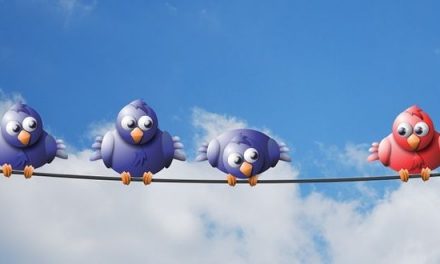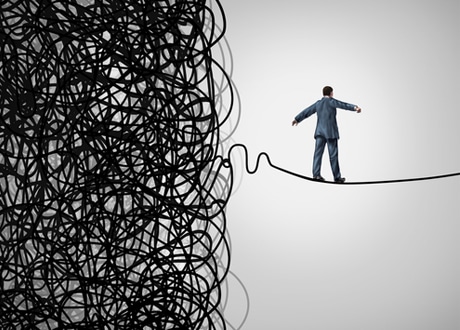
By Peter Schaller
Growing up in the 1980s, we were served the Cold War for breakfast, lunch and dinner.
It was mostly up to Ronald Reagan and George Bush Sr. to create a general sense of hysteria in the population, but since proper government propaganda channels were not quite enough, they brought in the rudest and cheapest flunky on the block—Hollywood.
The 80s were lousy with anti-communist movies, depicting the Soviet Union as cold, ruthless and an inhumane machine, hell bent on destroying our American bubble of security. Movies like Red Dawn, Rambo III, Red Scorpion, and Rocky IV made us realize with violent clarity that we had an enemy and if we didn’t take excruciating precautions to protect what was ours, they were coming for us and everything that we held sacred. And so it was that we learned to hate our enemies: anything Soviet, especially Russians, and even the color red.
Today, there is increasingly more talk about enemies, and consequently, more hatred.
Especially during this absurdly miserable political campaign, we are encouraged to see enemies around every corner, hiding in every shadow, waiting to pounce and take from us all that we cherish. With so many dividing factors among us, it’s easy to select an enemy, or multiple enemies—race, religion, economics, sexual orientation, ideology—we are free to pick and choose the inherent differences that make us whole, and convert them at will into animosity. Enemies, after all, are very effective for promoting nationalism, religious fervor, political allegiance, profit and most of all, fear.
Because of the rise in popularity of hatred, there are also many peacemakers countering the negative forces in the world and calling on us to love our enemies. All of the world’s major religions have provisions for such unbiased love. But even loving our enemies is not enough. We must work towards eliminating, unequivocally, the concept of the enemy from our conscious thought. If we agree to love our enemies, we are still recognizing them as adversaries.
Instead, we can fully internalize the Buddha’s teaching to act with loving kindness towards all sentient beings.
Where there is pure love, there can be no enemies. Where there are no enemies, there can be no hatred. While this practice requires, patience and discipline, it is possible to see even those people who intentionally cause harm or commit unjust and cruel acts, as beings who are also suffering and in great need of love.
I started to work on this idea a week ago, and in the midst of this writing, Orlando, one of the most horrendous hate crimes executed in the United States in recent years (let us not forget about Wounded Knee, the Trail of Tears and other heinous acts in our history). Who are the enemies? Muslims? Homosexuals? The NRA? Psychopathic gun owners? Preachers who applaud murder?
At moments as difficult as these, our tendency is to identify an enemy—a monster—someone that we can blame for the violence we cannot fathom. Someone to hate. That is exactly what the political and economic powers behind this madness want from us. Enemies and hatred create more divisions. The more we divide our human race into tiny fractions, the easier we are to manipulate and conquer.
But, at this tragic juncture in our existence, we must remain firm and committed to love. Let us not fall into the trap of hatred. May we find the strength to forgive and to love the gunman, the voices shouting from all sides with righteousness and arrogance. Let us radiate peace and compassion to everyone around us. We must find the courage to respond to hostility with love.
If we see no enemy, we will feel no hatred.
Peter Schaller is an artist and activist who lives and works in Nicaragua. He spends most of his time trying to figure out how to reduce his karmic and carbon footprints. He is the author of After the Silence, a collection of poems, essays and photographs, and he can be reached by email or on Facebook.
Photo: flickr
Editor: Dana Gornall
Comments
- Zen Buddhism and the Blues - April 5, 2024
- Escaping from Jehovah’s Witnesses through a Buddhist Path - March 24, 2024
- Getting to Know Holly Herring - February 29, 2024




